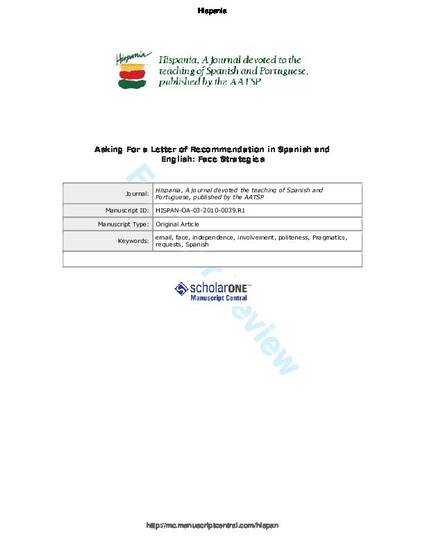
Linguistic politeness plays an important role in the opinions people form of one another, especially when an individual has little other knowledge of an interlocutor, as is often the case in relationships between professors and students. Positive face refers to the desire to be liked and appreciated; negative face refers to the desire to be unimpeded. Positive and negative face are often characterized as corresponding to the dichotomies of involvement vs. independence, intimacy vs. distance, and solidarity vs. deference. An action or utterance that goes against one’s need for appreciation, in the case of positive face, or need for autonomy, in the case of negative face, constitutes a face-threatening act. Almost any interaction has the potential to damage participants’ positive or negative face. Speech acts that attend to the addressee’s as well as the speaker’s own face, both positive and negative, are described as face work. Face work mitigates the force of face-threatening acts. This paper examines the face work in two students’ email requests for letters of recommendation, to investigate whether and how the type and amount of face work differs in requests written in English and Spanish by native speakers of each language.

Reprinted with permission.